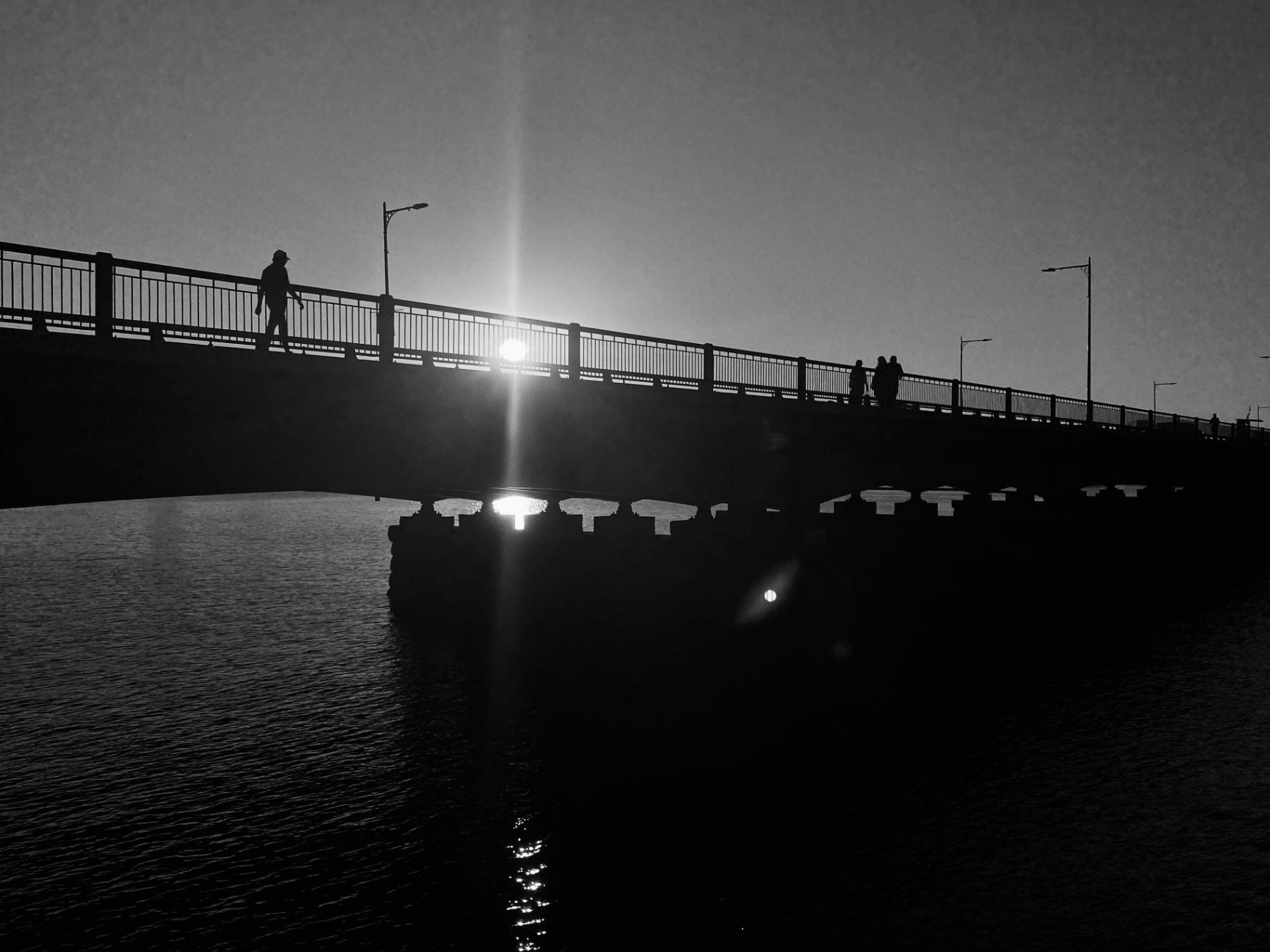After the phone call ends the wet cobblestone beneath my feet zooms into focus as the cracks between the rocks partition my field of vision and I look upwards as the world begins to recrystallize around me, waves crashing against the silhouette of La Isla de Santa Klara in the distance, the sound inundating my ears like that of digitized voices and one of my compatriots is yelling in Spanish with a hint of American Southern drawl, she’s on the other side of the street and her words are muffled as if I were wearing noise-canceling headphones, vamos a las escaleras que nos llevan al mar. And so we run to the stairs that lead us to the sea, slipping slightly on wet cobblestone and now weaving in and out of the slow walkers shuffling on the boardwalk of Donostia, a city with a thundering seafront that has the aura of a man in his early thirties agonized by unrequited love, and now we’re sitting side-by-side with the others on the rusty metal stairs, our eyes following the only swimmer in the late October Cantabrian waters, his white European skin dimly illuminated in the dark by the reflection of lamppost lights skipping on the waves and I find myself ruminating about the in-betweenness of our location given our proximity to the French border and the palpable French influence on the city’s Old Quarter — is he Spanish, or is he French? — and in my peripheral vision a small light flashes on the horizon reminding me of Gatsby. The tail of my scarf is blowing onto my friend’s shoulder but there is a mutual understanding that we are to keep the configuration of our parallel gazes uninterrupted, our eyes searching for meaning in the steady beam of light leaping from the invisible lighthouse of Santa Klara and I begin to wonder if the civilians on the French border in Hendaye can hold this light in their palms or if it falls through their fingers — what if this adagio of light is a metaphor for my current existence? The Cantabrian Sea filters into the Atlantic and I wonder if those way westward can sense the light in my hands and I question why everything has fallen quiet, the silence around language has an unhinging effect on reality that sounds like poetry and so I question why everything is starting to sound like poetry again because when everything is poetry I am unwell, espera, my friend says as I descend to the water, her grip is firm on my shoulder and the closeness between us pulverizes, replaced by a sense of distance when our gazes collide though the sisterhood remains and I try to become a sound when I say I’m going to have to leave, I’m going to have to leave you in the winter and she says vamos al mar juntas.
Writer | Jackeline Fernandes ’24 | jfernandes24@amherst.edu
Editor | Mel Arthur ’25 | marthur25@amherst.edu
